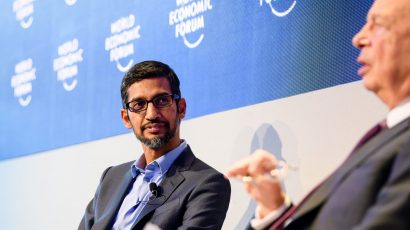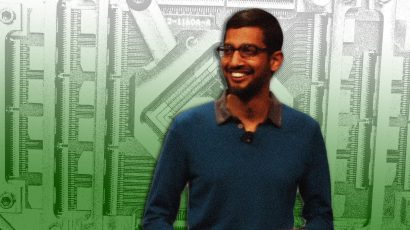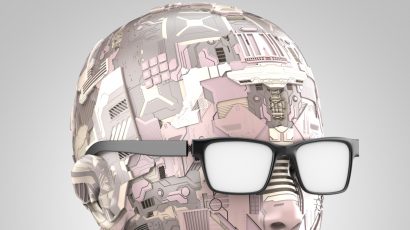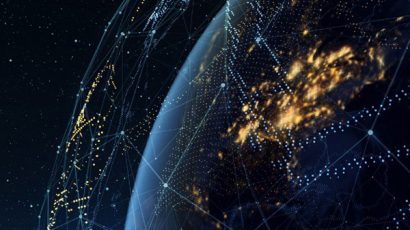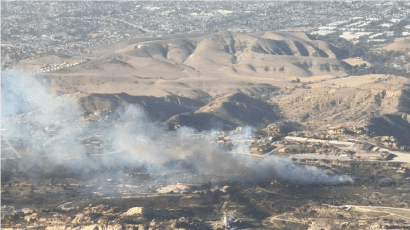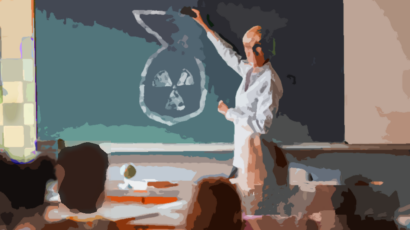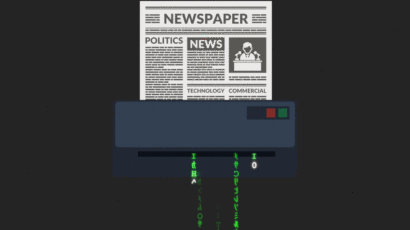Search results for
Compared to other Silicon Valley titans, Google has long appeared to be a bit player in the controversies over misinformation, hate speech, and user privacy that have plagued the likes of Facebook and Twitter, especially in the wake of the 2016 US presidential election. That may change Tuesday as Google CEO Sundar Pichai takes part … Continued
Google funds climate deniers
Publicly, it calls for climate action. Privately, Google contributes to some of the most notorious climate-deniers in Washington. (Incidentally, the company removed “Don’t be evil” from its code of conduct in April 2018.)
1945-1998 Bulletin backfile available via Google Books
As of December 9, 2008, 53 years of Bulletin content is now available online for free at Google Books. This archive begins with the first issue of the magazine--originally published in December 1945--and includes every year thereafter until 1998.
Information overload: The promise and risk of quantum computing
Google announced a breakthrough in quantum computing, a perennially just-over-the-horizon technology that promises to dramatically increase the speed at which computers can complete complex tasks. While the technology promises to unlock vast new areas of knowledge, it carries with it national security and other risks.
Artificial intelligence: a detailed explainer, with a human point of view
Is artificial intelligence, AI, a threat to our way of life, or a blessing? AI seeks to replicate and maybe replace what human intelligence does best: make complex decisions. Currently, human decision-making processes may include some means of AI as support or backup. But AI could also be “let out of the box” to act … Continued
Interview with Samuel West, founder of the Museum of Failure
Society needs to embrace the idea that most of the first tries at a new technology—such as those for renewables—will fail at first. But that’s good, so long as one learns from the experiences and moves on to the next iteration, until the technology succeeds.
Trumping The Manchurian Candidate. Again.
Political pundits have been making many references lately to The Manchurian Candidate, but few seem to know the origins of the phrase.
Artificial intelligence and national security
From Harvard University's Belfer Center, this study of artificial intelligence and its likely security implications is an outstanding one-stop primer on the subject.
Don’t fear the robot car bomb
The incentives and practicalities make it unlikely that robotic car bombs will be a near-term threat.
Is the cyber threat a weapon of mass destruction?
Google's surprise announcement of "a highly sophisticated and targeted attack" on its systems--a case of computer-aided espionage--has also raised the specter of offensive warfare. Defense News quotes Adm. Robert Willard of U.S.
A pandemic of bad science
Compared to public health crises of the recent past, there has been a distinct change in how science is communicated to the public. Experts no longer control the narrative through trusted outlets, and, accurate or not, social media allows anyone to craft their own narrative about science and publish it to an audience of millions.
A failure of governmental candor: The fire at the contaminated Santa Susana Field Laboratory
Nearly six weeks after the Woolsey Fire—and after numerous requests from the community, news media, and legislators—California regulators finally issued an “interim summary” report about the measurements that formed the basis for the claims that no contamination was released from the Santa Susana Field Laboratory site. But that report includes few actual measurements of smoke emitted by the fire, and the data that are in the report raise more concerns than they allay.
How my Gen Z students learned to start worrying and dismantle the Bomb
A life-long opponent of nuclear weapons—raised during the Cold War—reflects on intergenerational lessons about activism, and teaching college students to embrace their curiosity, and their fear, on the way to saving the world.
Killer robots reconsidered: Could AI weapons actually cut collateral damage?
Although activists are calling for an international ban on lethal autonomous weapons, incorporating AI into weapons systems may make them more accurate and result in fewer civilian casualties during war.
Nuclear Roundup: 1/8/2018
A daily roundup of quality nuclear policy news. North Korea Nikki Haley on Trump’s ‘nuclear button’ tweet: He must ‘keep Kim on his toes’ Threat of North Korean weapons testing lingers over talks with the South Ban Ki-moon calls Trump’s North Korea tweets ‘a message from the international community’ Mike Pompeo doubts talks between North … Continued
Playing at nuclear war
Just in time for holiday shopping comes nuclear virtual reality, in the form of video games, documentaries, emergency simulations, and so-called disaster tourism.
Practical nuclear questions for the presidential candidates, and the psychology of doom
The 2016 presidential race is unusual in many ways, but a silver lining of sorts has emerged: For the first time since Lyndon Johnson’s famous “Daisy” political ad during the 1964 presidential campaign, the control that the president of the United States wields over the US nuclear arsenal is under serious discussion. In his introduction … Continued
Can journalism resist a chatbot-fueled race to the bottom?
The industry’s response to generative AI, like ChatGPT, will tease out legit media organizations from the rest.
The dirty parts of the computing world
The Cloud is surprisingly poisonous, a fact that few people outside of big data centers seem to be aware of. And that’s before the energy hog known as Bitcoin came along.
